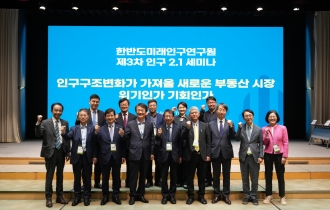Part-timers refuse to be confined by time, space

Coupang Eats delivery riders. The e-commerce giant operates a hiring system, called Coupang Flex, to allow part-timers a more flexible working environment. (Coupang Eats)
Kim Min-soo, a senior college student, stands next to his bicycle as he waits for a delivery order on a bustling street in Hongdae, western Seoul, on a Saturday afternoon.
After a few minutes of waiting, his phone, adjusted to the handle of his bike, lights up with a message and notifies him of a delivery call from a to-go restaurant. With the app’s artificial intelligence navigation system showing him the optimal route to the restaurant, Lee gets on his bike to pick up the food.
“I used to have a part-time job at a restaurant, but recently found that I was going to need more time for studying. I’ve been working as a ‘Baemin Rider’ for three months,” Kim said, referring to a part-time job for the delivery app Baemin.
“It’s a very simple job, with low entry barriers and flexible working time, as I get to choose the deliveries I would like to make each day.”
Kim is one of many part-timers in South Korea who refuse to be held to rigid working hours at set locations.
Face-to-face service jobs with scheduled work hours on contracts of at least six months have long been considered the norm for part-time work here.
But conventional jobs like working at cafes, restaurants and movie theaters are no longer sought after by young people, according to a recent survey by part-time job portal Albacall.
Out of 599 part-time job seekers surveyed, 40.7 percent said they would like to get part-time jobs with a contract period less than three months, while 32.3 percent said they preferred to work from home.
In a separate survey by job search site Albamon, 55.2 percent responded they preferred short-term part-time jobs because they could use their time more freely, while 44.2 percent cited they had to juggle multiple jobs.
Delivery services have become immensely popular among part-time workers during the pandemic. According to Statistics Korea, there were almost 430,000 delivery riders as of October last year, up 9.7 percent compared to a year ago.
“I worked 17 days last month and earned nearly 1 million won ($723). The job doesn’t give me any stress from work colleagues, has fair compensation, and, most importantly, lets me choose my own work schedule,” said Song Yoon-ho, a senior college student who works for Coupang Flex in his spare time.
Coupang Flex is a hiring system for part-time delivery workers for e-commerce giant Coupang. The system operates around matching part-timers with deliveries near their location. Part-timers are free to accept or decline any deliveries and work for as long as they want, on the time they want.
Another type of part-time job on the rise is for “open runners” who wait in line before a luxury brand store opens and purchase goods for clients. They sometimes resell the products to earn fees.
With competition getting fiercer for luxury shopping, long queues outside the local stores of popular European fashion houses have become a common scene here.
“Ever since I found the department store open run part-time job on (secondhand marketplace) Carrot Market, I quit my old part-time job working at a cafe,” said a college student who wished to be unnamed.
“By just waiting in line for luxury brand stores to open, and buying the goods employers select, I get to earn 15,000 won per hour, which is nearly 6,000 won more than the current minimum wage. The work is not demanding, and I get to choose the date and location of my work.”
Park Eun-kyu, a senior researcher from Korea Employment Information Service, said that the spread of the pandemic and the pursuit of work-life balance, on top of the transparent compensation system, are attracting young people to these new types of part-time jobs.
“Noticeable traits of these part-time jobs are that they are relatively free of human interaction and compensated fairly. Part-timers do not need to interact with their work colleagues or clients, and get instantly paid for every work they finish,” said Park, commenting that this reflects the current part-timers’ desire for rationality in the workplace.
“This phenomenon can have a positive effect of having part-timers expand their job opportunities. It will enable future employees to decide their priorities in choosing careers, by letting them compare their experiences of having worked at diverse kinds of jobs,” he added.
By Lee Yoon-seo (yoonseo.3348@heraldcorp.com)
EDITOR'S PICKS
- [Exclusive] Korean military set to ban iPhones over 'security' concerns
- SK CEOs vow to bolster corporate value-up drive
- Aging population to drive down Korea's housing prices from 2040: experts
- LG CNS wins Google Cloud partner awards for second year
- CJ's processed rice sales soar in North America
- [Herald Interview] Bridging Korea, Philippines for better future
- Samsung SDI showcases latest battery tech at EVS37
- Posco completes new silicon anode material plant






![[Exclusive] Korean military set to ban iPhones over 'security' concerns](http://res.heraldm.com/phpwas/restmb_idxmake.php?idx=141&simg=/content/image/2024/04/23/20240423050599_0.jpg)




![[Herald Interview] Bridging Korea, Philippines for better future](http://res.heraldm.com/phpwas/restmb_idxmake.php?idx=141&simg=/content/image/2024/04/23/20240423050735_0.jpg)



